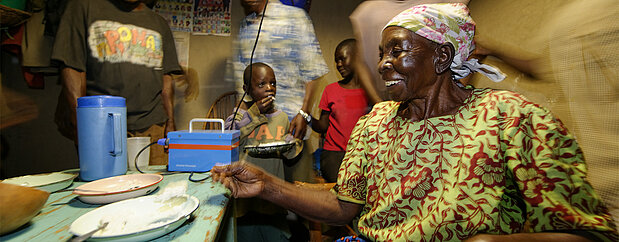
July 2017 - Detailed rules for these three cooperative approaches under Art. 6 of the Paris Agreement are currently being negotiated under the UNFCCC. Against this background, the Wuppertal Institute conducted the expert workshop “Clearing the Haze: Market-based Cooperative Climate Action under Article 6 Begins to Take Shape” on behalf of the German Federal Ministry for the Environment, Nature Conversation, Building and Nuclear Safety (BMU) on 14 June 2017 in Berlin.
The aim of the workshop was to enable an exchange between the representatives of the BMUB and selected experts on the question of what can be and what must be mentioned in the implementing decisions on Article 6 of the Paris Agreement. The workshop started with taking stock of latest advances in both Article 6 submissions and the negotiations.
The afternoon session of the workshop was dedicated to more detailed discussions on one specific issue: the operationalization of sustainable development provisions in the Article 6 mechanisms (6.2 and 6.4). Following an impulse presentation, participants split up into three breakout groups and discussed in an interactive format how SD provisions could apply under different forms of international cooperative climate action under Article 6: a project-based mechanism, a policy-based instrument (international co-financed renewable energy feed-in tariff), and linking of emissions trading schemes.
While the discussions showed that a further operationalization of SD provisions will be challenging at least as long as the design of different forms of cooperation is as uncharted as it is today, there was one element consistently discussed across all groups: minimum requirements, i.e. at the very least, there should be provisions in the form of safeguards in place ensuring that activities related to Art. 6 do not cause harm and do not violate human rights.
Cookie Settings
Marketing-Cookies werden von Drittanbietern oder Publishern verwendet, um personalisierte Werbung anzuzeigen. Sie tun dies, indem sie Besucher über Websites hinweg verfolgen.
Provider:
Statistik Cookies
Statistik-Cookies dienen der Analyse und helfen uns dabei zu verstehen, wie Besucher mit unserer Website interagieren, indem Informationen anonymisiert gesammelt werden. Auf Basis dieser Informationen können wir unsere Website für Sie weiter verbessern und optimieren.
Provider:
Erforderliche Cookies
Erforderliche Cookies sind für den reibungslosen Betrieb der Website zuständig, indem sie Kernfunktionalitäten ermöglichen, ohne die unsere Website nicht richtig funktioniert. Diese Cookies können nur über Ihre Browser-Einstellungen deaktiviert werden.
Provider: